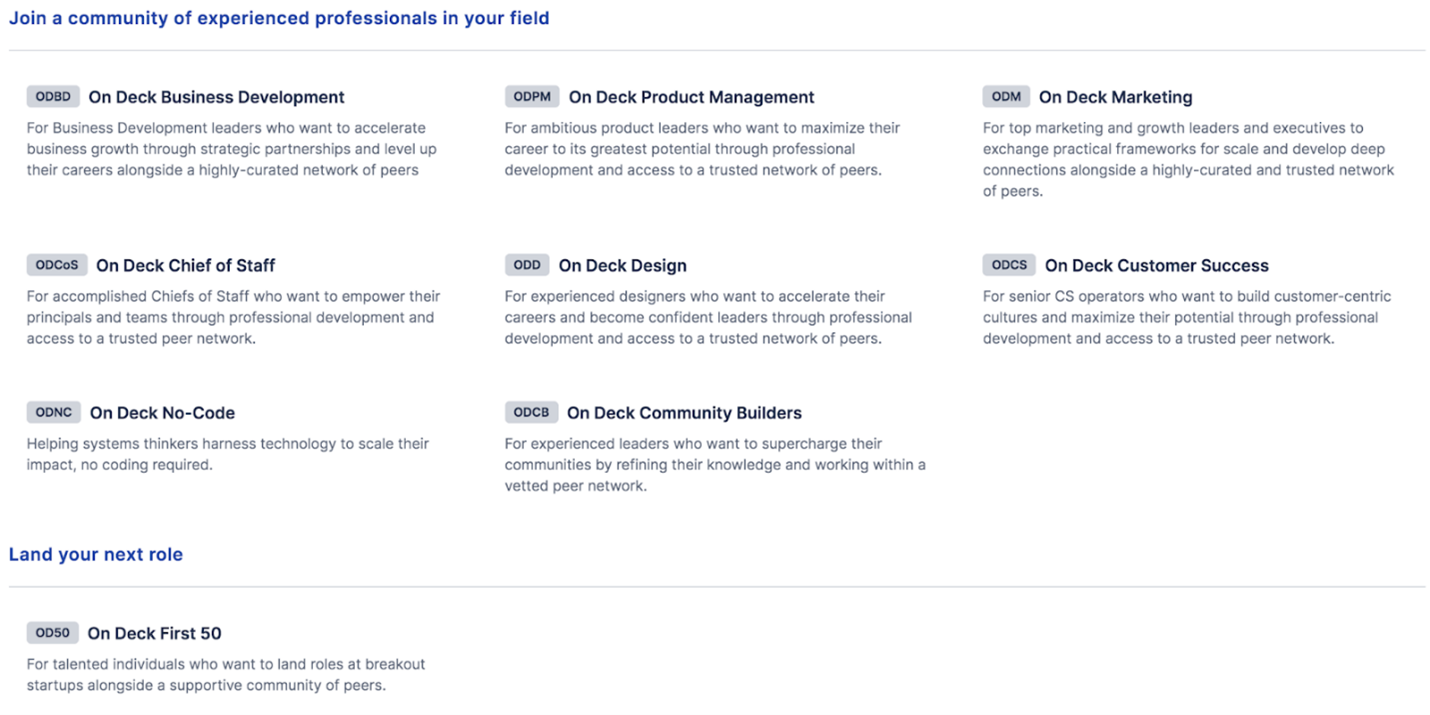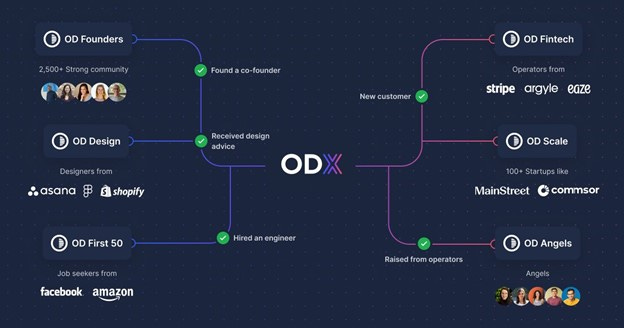Welcome to Innovators. Join hundreds of smart, intellectually curious folks by subscribing below:
Hello everyone,
In 2013, esteemed contrarian, entrepreneur and venture capitalist, Peter Thiel famously said,
“We wanted flying cars, instead we got 140 characters”.
His statement was not a knock on Twitter, but an observation that technological progress was decelerating and innovation was only happening on the margins of societal problems.
At that time, smartphones were becoming ubiquitous, connecting billions of people to the internet and laying the groundwork for innovative new business models. Online platforms and marketplaces like Amazon, Facebook, Airbnb, and many more were changing the way people and businesses would interact with one another. Founders had wind in their sails; entrepreneurs could start and scale companies like never before thanks to the capital flooding into startups and access to technical infrastructure provided by Amazon Web Services.
The 2010’s gave rise to companies like Airbnb, Stripe, Instagram, and Square that have become fixtures in our daily lives. But, despite the tech behemoths that were built and the corresponding value that was created, an immeasurable number of problems would endure.
In April of 2020, Marc Andreesen wrote “It’s Time to Build” to highlight the “monumental failure of institutional effectiveness” in dealing with Covid-19. Andreesen argues that the root cause of this ineffectiveness is lack of action and specifically a widespread inability to build new things. Satisfaction with the status quo and unwillingness to build extend far beyond the pandemic, and healthcare broadly, plaguing American life. Complacency is innovation’s kryptonite.
Technological stagnation will inevitably result in an exponential decay of civilization.
I believe startups are the building blocks of economic progress, so unless you think that everything that will be created, has been created (this is a very pessimistic, dystopian, and lazy view of the world), it is imperative that we continue innovating and empowering founders to build new things.
We urgently need a new way of thinking about business and innovation, a re-foundation of purpose and humanity, a societal desire that is birthed from overwhelming necessity.
Schramm’s Law offers a framework for stimulating progress and imagining a better world, “the single most important contributor to a nation’s economic growth is the number of startups that grow to a billion dollars in revenue within 20 years.”
Creating new, successful companies isn’t easy or else we would already be doing it. It is imperative that society at large fosters an ethos of building, where it is not only accepted, but encouraged to build directly, support those building, or teach people how to build. We need to put the best talent we have on the biggest problems we face and we need to establish a culture of support.
Rather than preserving our position in what we perceive as a static world, we should configure ourselves in a way that galvanizes a revival.
One way to drive progress is by reimagining the education system. I don’t mean grade school, I think those teachers are societal heroes and should be held in high regard; I mean college and more specifically, post grad programs. If we want to rebuild education to accelerate innovation, we must decompose “education” into its component parts. Rebuilding a piece of the public sector is an enormous feat, so On Deck decided to redefine it.
If it isn’t evident by the extremely long winded introduction, spurring technological progress and supporting those on the front lines of innovation is something I feel strongly about, so without further ado...
Let’s get into it.
The value graduate programs bring to students has several contributing factors, like helping individuals discover the things they are passionate about, form personal and professional relationships, and develop the skills and EQ to kickstart a successful career. Prestige is often attributed to the school's curriculum, but in reality the material being taught is a commodity.
Dubbed the “Stanford of the Internet”, On Deck is creating a modern education institution as a digitally native network helping ambitious talent start or join a company, develop new skills, build meaningful relationships, and advance in their career; creating a campus for lifelong learning.
While On Deck’s mission is to offer the value of university to anyone with an IP address, their Series A Memo breaks the network down into its two key components:
A new approach to continuous online education: delivered through synchronous 'cohorts' of 100 - 200 individuals, with an emphasis on peer-to-peer learning. In 2021, On Deck will launch up to 120 of these cohorts across ~30 subsets, driving substantial upfront cash flow.
A private, professional social network and platform. Serving as the "campus" to our "college," the On Deck product is a “market network” facilitating matching between talent and opportunity, knowledge, and more. Think: private LinkedIn/AngelList meets Quora — with potential to be as impactful as any of them.
On Deck began as a series of dinners in the Bay Area for people working in large organizations who wanted to collaborate with like minded individuals in a private setting. The success of these engagements sprouted similar events in 20 cities around the world. At the onset of the pandemic, founder Erik Torenberg evolved On Deck into an online program and launched the first cohort called On Deck Founders (ODF).
ODF is for prospective founders in an exploratory phase. It allows people to brainstorm ideas, test hypotheses, look for co-founders, develop founder skills, and much more, all while maintaining optionality. ODF can be thought of as a global community of entrepreneurs in residence.
One ODF fellow I spoke to described it like this,
“if you’re the average of the 5 people you spend the most time with, On Deck increases that average.”
This same person made their first full-time hire from their On Deck cohort.
On Deck began with ODF on the premise that the real way to affect change is by getting people off of the sidelines. On Deck is doing its part by removing the bottlenecks for people to start companies and work to solve the world’s hardest problems. In a world where there is no shortage of capital, solutions are limited by the number of new ideas and the people to execute them.

When asked about On Deck, legendary investor Chris Sacca said, “When people ask me how to break into the startup world, I tell them to get in a room and start talking and doing all they can to be helpful. Cheers to Erik for creating the room. We have all needed this for so long.”
However, the virality of network effects can be a net negative in a communal setting. What I mean by that is the quality of the network is determined by the quality of the nodes on the network and by the interactions of those nodes. A congested network would pose a real threat to On Deck. But On Deck is not ODF or any singular program; On Deck is building the infrastructure on which programs can be created.
Jake Singer explains the flywheel of On Deck’s fellowships by saying,
“Today the focal point is ODF. New fellowships are spawning in response to what founders need. But in the future, each new fellowship might become the center of its own set of opportunities. The result will be an evolving, multiplying process that cannot be fully predicted ahead of time.”
Since the first cohort, On Deck has launched 18 new ten-week programs for people at any stage in their career.
Much has been written about On Deck fellowships, how they operate, and the value they bring, but a few weeks ago On Deck announced ODX, their $100 million accelerator to back founders and fund early-stage startups.
ODX puts capital at the heart of the On Deck ecosystem.
In the release, On Deck states, “In just two years, we’ve helped founders start 650+ companies now worth over $5 billion find their first customers, hires and investors.”
Vertically integrating will enable On Deck to support top tech talent from idea to launch, and beyond. Founders need capital, talent, and distribution; On Deck provides all three and has digitized the journey from Stanford to Sand Hill Road in an effort to decouple geographic location from economic opportunity.
On Deck invests $125,000 for 7% and offers personalized access to the On Deck network through a dedicated “Build Partner”. A build partner is someone who helps the participants navigate through the On Deck platform, review progress, identify problems and find solutions.
Allowing companies in the accelerator to tap in to the robust On Deck network is a way to immediately generate alpha and expand the startup ecosystem. Capital is no longer hard to come by; in today’s market, community and talent are the great scarcities when it comes to starting a company. Having direct access to top talent, world class operators, a plethora of potential customers, and a link to the best investors in the world is like a cheat code for startup success.
Startup accelerators are not new. The point of differentiation for ODX is the underlying community. The tools to start a company are freely available to anyone in the world with an internet connection; this democratization of resources means the noise is higher than ever. For founders, having a community of collaborators, early customers, and people offering genuine feedback is invaluable. On Deck is removing the bottleneck for founders to launch startups and solve the world’s most pressing problems.
Until next time ✌️,
AC
If you like this post, share it with a friend.
If you didn’t like this post, share it with a friend, maybe they will!








